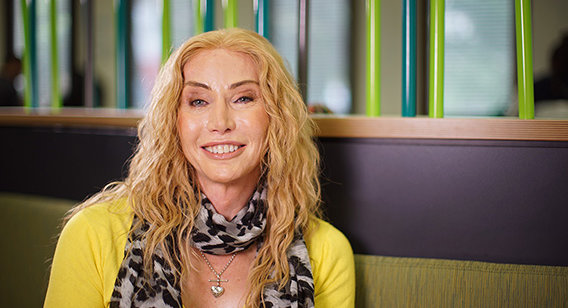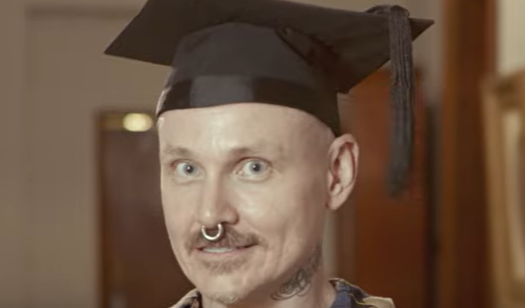

Graduate Certificate of Counselling
Graduate Certificate of Counselling
Gain foundational counselling skills and knowledge.
(2 Trimesters)
+ You are expected to participate in live online tutorial sessions and attend a 2-day workshop for each counselling unit each trimester of study.

Overview
The Graduate Certificate of Counselling provides an introduction to the field of counselling and equips students with some foundational counselling skills and knowledge.
This course is designed for students who have an undergraduate degree in another discipline and want to develop a skills foundation for work in the helping professions, or to gain entry to further postgraduate counselling studies. Successful completion of the Graduate Certificate of Counselling provides a direct pathway to the Master of Counselling and Psychotherapy course at ACAP.
This course has also been accredited by ACAP under its self-accrediting authority.

What you'll learn
Expertise in human behaviour forms the foundation of all our courses including our Graduate Certificate of Counselling.
EXPLORE WITH AN APPLIED FOCUS:
-
Counselling Practice
-
Counselling Theories
-
Cross-cultural Counselling
-
Ethical Practice

Potential Careers
Once you graduate from the Graduate Certificate of Counselling, you will open doors to a range of possible career opportunities. Listed below are a few typical roles you could consider.
-
Community Worker
-
Family Support Worker
-
Disability Support Worker
Course structure
The Graduate Certificate of Counselling course is comprised of 4 units, which are level 500 units. To find out unit delivery information view the relevant Yearly Planner.
The course duration is 26 weeks full time or up to 2 years part time. For more information on the recommended course sequence click here.
Level: 500 level core
Credit points: 8
Prerequisites: None
Unit Description:
This unit explores the role of a counsellor in contemporary society. Students learn and apply foundational counselling knowledge and skills, with an emphasis on the development of an evolving self-awareness. Emphasis is placed on developing understanding and demonstrating the structure of a counselling session, including case conceptualisation, assessment and closure.
Learning Outcomes:
On successful completion of this unit, students will be able to:
Learning and Teaching Process:
The workload for this unit is 12 hours per week.
Level: 500 level core
Credit points: 8
Prerequisites: None
Unit Description:
This unit provides students with an understanding of the background and applications of key counselling modalities. Students learn to apply different theoretical models to practice, including case conceptualisation, trauma informed practice, alternative modes of working with clients (such as video conferencing and telephone), and multicultural counselling.
Learning Outcomes:
On successful completion of this unit, students will be able to:
Learning and Teaching Process:
The workload for this unit is 12 hours per week.
Level: 500 level core
Credit points: 8
Prerequisites: COUN5131 and COUN5141
Unit Description:
This unit provides students with an evolving self-awareness of personal biases and stereotypes. Students develop and demonstrate the ability to recognise and respond sensitively to diversity in clients, irrespective of personal biases. They develop and demonstrate understanding, skills and models to work sensitively and ethically with diverse population groups in Australia, including Aboriginal and Torres Strait Islander peoples. Cultural conceptions of mental health are examined, including the implications for a person’s mental health when they are part of a minority, or stigmatised group in a society.
Learning Outcomes:
On successful completion of this unit, students will be able to:
Learning and Teaching Process:
The workload for this unit is 12 hours per week.
Level: 500 level core
Credit points: 8
Prerequisites: COUN5131 and COUN5141
Unit Description:
This unit develops students’ awareness and understanding of ethical dilemmas and ethical violations. Students are introduced to the importance of self-reflexivity when working with the ethical principles of practice and research. The ethical and legal obligations in ethical decision making and social justice practices are addressed for all stakeholders in a situation. Students learn to work within Codes of Ethics, Codes of Conduct and relevant professional and legal requirements and apply ethical sensitivity when working with individuals, couples, families, groups and members of minority population groups. There is a focus on understanding the ethical implications and requirements when working with family violence, self-harm and harm to others, and the need to conduct timely and sensitive risk assessments.
Learning Outcomes:
On successful completion of this unit, students will be able to:
Learning and Teaching Process:
The workload for this unit is 12 hours per week.
View unit descriptions
Course Learning Outcomes
- Review, interpret, integrate, synthesise and apply an advanced theoretical knowledge of a range of theories, models and frameworks influencing contemporary counselling, mental health and wellbeing practice.
- Critically analyse, evaluate and apply information to complete a range of activities in counselling, with a commitment to the principles of ethical practice, social justice and sustainability.
- Professionally apply and transmit advanced knowledge to effectively demonstrate sophisticated levels of self-reflexivity, autonomy and adaptability, with diverse populations within multiple service provision contexts.
- Demonstrates an advanced capacity to critically analyse, synthesise and communicate ideas at an advanced academic level, using contemporary communication approaches.
Pathways for future study
Completion of the Graduate Certificate of Counselling provides the necessary qualification to apply for further study in counselling in the Master of Counselling and Psychotherapy.



